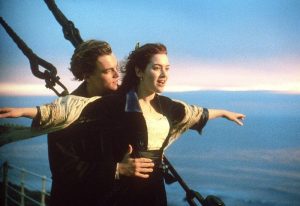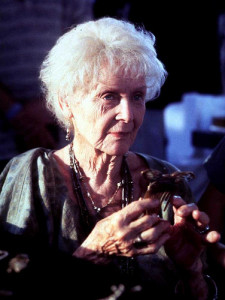Aristotle probably would have liked Titanic. He might have even compared it to Sophocles’ Theban Plays, celebrating Jack and Rose as one might appreciate Antigone and Oedipus. We can’t be sure, of course, but in all likelihood Plato’s student would have praised the late 90’s sob story as an exemplary specimen of tragedy. Maybe that’s the reason Aristotle’s treatise on Poetics runs into a few icebergs of its own.
His first Titanic-sized mistake was equating poetry to science. Aristotle tried to dissect plays and the art of tragedy as if they were a pickled frog in high school biology class. He applied his consistently rational mind to a sphere of ideas which are usually assigned to the emotional and, at times, even irrational.
In Poetics, Aristotle outlines what he sees as the essential components of tragedy, along with a few interesting literary devices that can be thrown in to spice things up. These legislations on literature went on to have a significant influence throughout the ages and, in fact, remained prevalent and often unquestioned until the 19th century.
Of course, some of his ‘rules’ do work… but when fully applied, you end up with a James Cameron cry fest.
Before anything else, Aristotle defines ‘tragedy’. It is something, says he, that evokes pity, fear and emotion in us. It is a katharsis, a cleansing of feeling. Interestingly, we can only feel so much for these characters because of another attribute of tragedy; mimesis, or the idea that the actions that occur are possible and relatable. It doesn’t have to be realistic, per se, but it has to be something we can imagine…
This is important precisely because the events are not actually happening, but still inspire deep emotion within us. Therefore, we can cry and feel better without having to contemplate too much the real tragedies that exist all around us.
Now for Aristotle’s rules on what makes a tragedy as “good” as Titanic.
His first posit regards plot, or mythos. Plot is more important than Character, according to Aristotle, as it drives a course of actions that captivates the audience, no matter what teenage heart throb is the mouthpiece.
These series of events must occur in order and in a sequence that makes sense, argues Aristotle. There must be a beginning, a middle and an end. The ship can only start sinking once it has hit a block of ice. In addition, a tragic story must move from happiness to desolate sadness, such as a sunken vessel and a dead lover.
The actions have to be complete and fully contained within the story. We don’t care where Rose went to school or if Jack has a pirate tattoo. All the essential plot points occur within the tale, with nothing unnecessary added nor anything important missing. This is also crucial for the Unity of the plot. It should be something that nicely ties together with a big bow at the end.
Aristotle’s next regulation concerns the magnitude of the art itself. It must, he assures us, be consumed as a unity, within the eye’s spectrum or an audience member’s patience. The never ending works of Wagner and crop circles, only visible from the sky, would hold little value for this philosopher. The two and half hours it takes for the Titanic to capsize, however, fits the bill perfectly.
Then Aristotle throws a bone to the writers of the world. He gives them the “rule of possibility”, allowing them to write whatever they want if it makes the story more compelling. Aristotle believes, after all, that poetry is more significant than history because it speaks more universally.
Did Rose and Jack actually walk the boards of that famous ship? Probably not. But does their moonlight traipse tell a nice story of class struggle? Sure, why not.
Then there are the clever ways of stirring up the plot’s pot. Elements such as ‘Recognition’, where someone discovers some great unknown, can change the course of action to its finale.
‘Reversal of the Situation’ is another fantastic way to swiftly switch things around. At the close of the art, the audience should be surprised, while still believing the possibility of what happened. For instance, we may not have expected to see an elderly Rose reveal that she has had the jewel all along! But it is, by no means, outside the realm of possibility.
Admittedly, Titanic was a blockbuster. It was clearly a very successful film, one of the most recognized movies of our time. It adheres to a plethora of Aristotle’s prescriptions… down to the ever popular Greek theme of Hubris, as witnessed in the initial description of that unsinkable ship.
Then surely Aristotle must be right, describing exactly what poetry in tragedy should be. Following that logic, Titanic is everyone’s favorite sad movie because it encompasses all the qualities of the ideal tragedy. Unfortunately, Titanic isn’t universally appealing. While some people love the emotive film, other individuals hate it.
This inconvenient truth disrupts Aristotle’s literary laws because art is not as rational as a chemistry set. Art is subjective.
In the end, tragedy, like beauty, is in the eye of the beholder.
Throughout history, critics and theorists have tried to put rules around artistic endeavors and have failed. The impressionists, for instance, broke all the regulations according to the French academy…and yet their masterpieces now adorn the walls of the very best art museums.
So then, what was the point of Aristotle’s Poetics? What did he achieve?
He actually accomplished a lot.
Aristotle was sticking up for art by rebelling against Plato. In his teacher’s famous work, The Republic, Plato admonishes the creative pursuits, insisting that it has no value. According to Plato, life as we know it is just an imitation of the things that truly exist. Why, then, would you want something that is an imitation of an imitation?
Aristotle countered this accusation head-on in Poetics. We know art is an imitation, and yet we are still moved by it. Why?
Aristotle believed that we are naturally attracted to poetry and art. He observed that imitations of things have the power to fascinate and enthrall us, while the real thing might in fact leave us disgusted. So too can we learn from art forms, an act that in and of itself brings us pleasure. Likewise, art has the power to inspire feelings, states of mind and awareness of abstract, general ideas.
To Aristotle, the emotive arousal, the acts of katharsis, the release of sentimental tensions are, indeed, good for us. This is probably why blockbusters, like Titanic, do so well.
After all the rules, definitions and posits, can we say that the scientifically minded Aristotle understood tragedy? We aren’t certain, but we do respect that this unlikely champion was the first to even think about art critically… and stand up for it.
—-
“Aristotle’s Poetics – The Science of Tragedy” was written by Anya Leonard











2 comments
I do not think it is a fair assessment of Aristotle to say that he tried to
present a fully rationalised version of Tragedy. He pointed some common
expectations and where and when an artist might go too far for the common
audience.
As for Plato being against “creative pursuits”…surely, if indeed he was still
“curling the hairs” of the his philosophical writings at his death, he had a
deep appreciation for aesthetics.
Hi Anya, thank you for this engaging article.
I think you are right to give Aristotle credit for the lifelong influence on tragedy.
However, I don’t think he was trying to equate it to science. He simply observed all the successful tragedies and systematically explained what he thought had made them successful.
As for the rationalization part, he was actually trying to defend it from Plato’s attacks, explaining rationally why the irrational aspect (such as emotions) was fruitful. The whole point of catharsis (and arguments for this we can find in other works, such as ”Nicomachean Ethics” or ”Politics” is learning how to manage these emotions in reality.
Trackbacks
Our apologies, you must be logged in to post a comment.